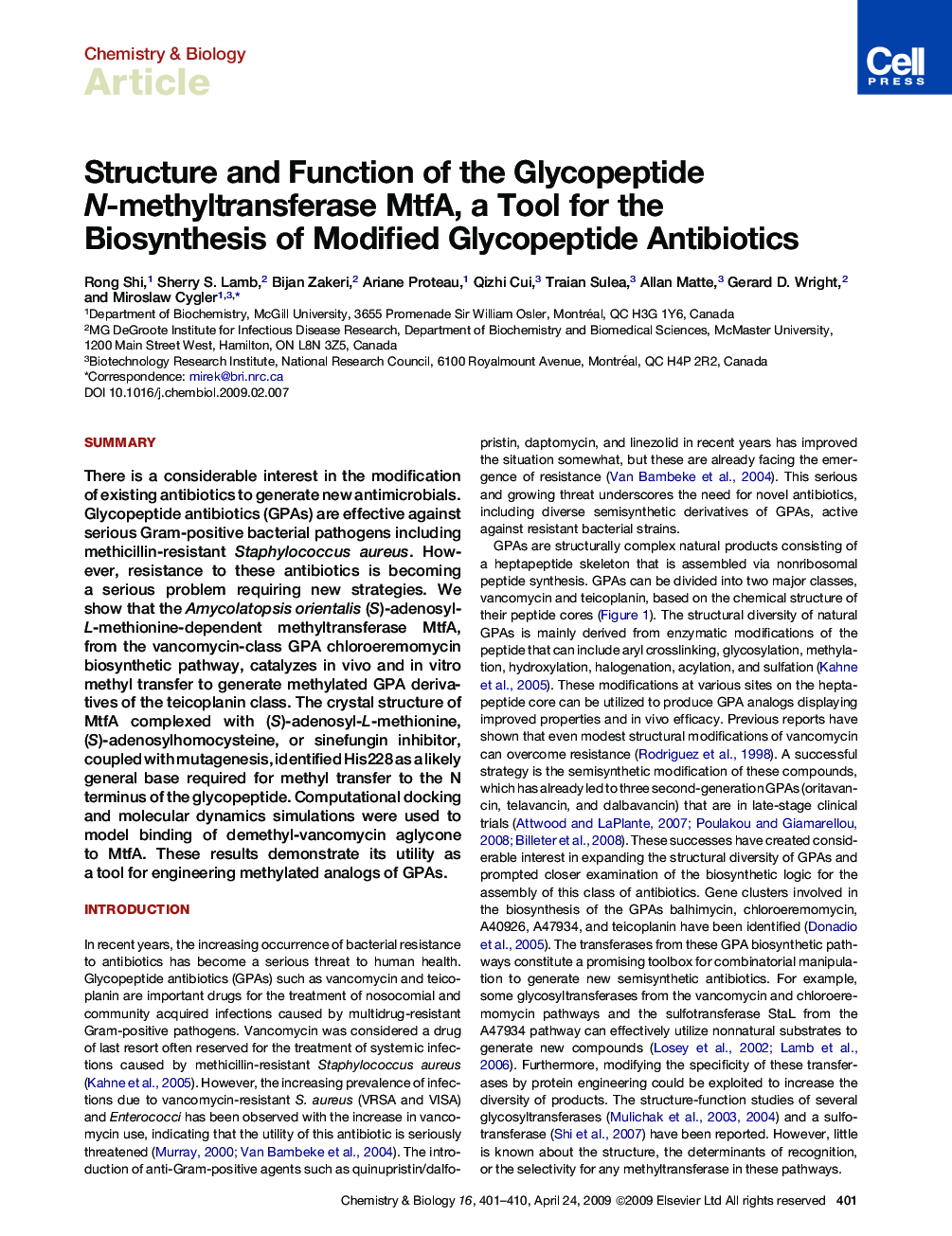| Article ID | Journal | Published Year | Pages | File Type |
|---|---|---|---|---|
| 1393898 | Chemistry & Biology | 2009 | 10 Pages |
SummaryThere is a considerable interest in the modification of existing antibiotics to generate new antimicrobials. Glycopeptide antibiotics (GPAs) are effective against serious Gram-positive bacterial pathogens including methicillin-resistant Staphylococcus aureus. However, resistance to these antibiotics is becoming a serious problem requiring new strategies. We show that the Amycolatopsis orientalis (S)-adenosyl-L-methionine-dependent methyltransferase MtfA, from the vancomycin-class GPA chloroeremomycin biosynthetic pathway, catalyzes in vivo and in vitro methyl transfer to generate methylated GPA derivatives of the teicoplanin class. The crystal structure of MtfA complexed with (S)-adenosyl-L-methionine, (S)-adenosylhomocysteine, or sinefungin inhibitor, coupled with mutagenesis, identified His228 as a likely general base required for methyl transfer to the N terminus of the glycopeptide. Computational docking and molecular dynamics simulations were used to model binding of demethyl-vancomycin aglycone to MtfA. These results demonstrate its utility as a tool for engineering methylated analogs of GPAs.
